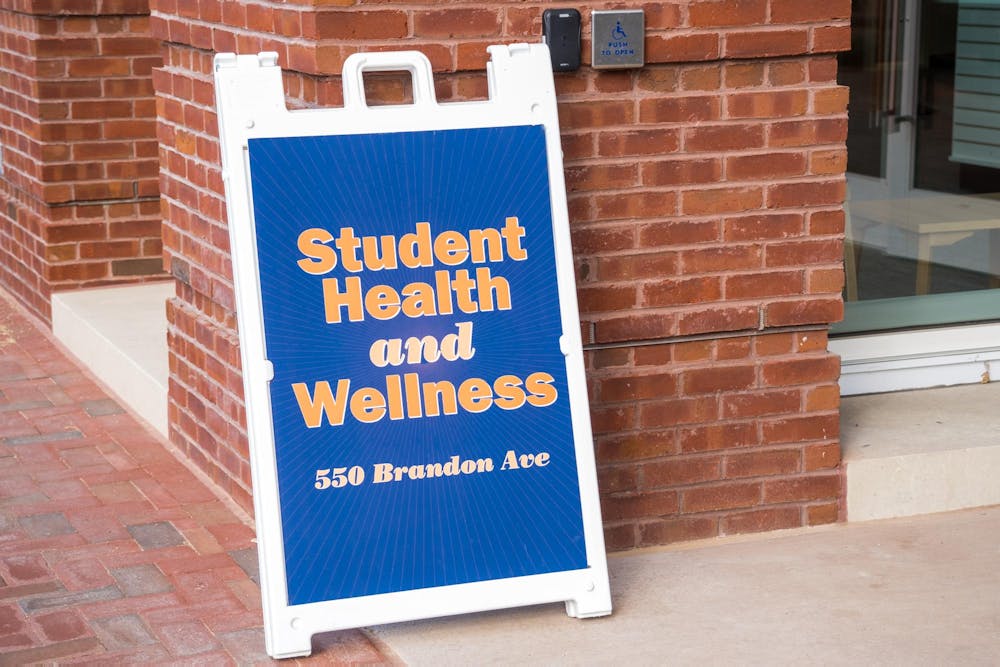In the last month, there has been a rise in flu, norovirus and other respiratory illnesses within the University community, according to Student Health and Wellness and the U.Va. Health University Medical Center. They have reported an influx of influenza-like illness in the last several weeks and a rise in the number of cases from the same time last year.
According to the CDC, flu season occurs December through February in the United States and most often peaks in February. Influenza types A and B typically cause these flu season peaks, with patients typically experiencing fever, cough, and sore throat symptoms.
Dr. Jessica Simmons, the director of medical services for Student Health and Wellness, said though this flu season appears similar in severity to previous years, a change was the robust amount of cases starting in early January. Simmons said that SHW will continue to watch these changes as flu season progresses.
“Something that we saw that was different this year, was just sort of how many flu A cases we had quickly,” Simmons said. “The number of flu cases is still on the rise in our area, and so that is something that we're watching right now.”
According to data from SHW, 196 students tested positive for Flu A at SHW between Jan. 1 and Feb. 2 this year, an increase of 23 cases from 173 positive tests during the same month in 2024. Only one student tested positive for Flu B.
Simmons said once SHW sees a significant number of flu cases, they do not need to test patients and instead do clinical diagnosis — the process of making a diagnosis based on symptoms rather than a flu test.
“Of those students who do come in, we don’t test all of them as we are able to clinically diagnose many, or testing does not add to the care and management plan,” Simmons said.
If needed, medication can be provided after a clinical diagnosis. She also said not all sick students come in for testing since for many the best thing to do is stay home and follow supportive care measures such as rest and hydration, which might account for an underestimate of the number of students with the flu.
To support the higher volume of students requesting appointments at SHW, students have an option through Healthy Hoos, an online patient portal that gives students access to SHW resources such as medical appointments, to speak over the phone with a nurse to discuss their symptoms. Simmons said via these calls, nurses can advise students whether to stay home or make an in-person appointment, and they can prescribe medication over the phone if needed.
Tamiflu, a common antiviral drug to treat the flu, is most beneficial to patients with underlying health conditions or who fall within the first 48 hours of symptoms, according to Simmons. She explained that Tamiflu is less beneficial to patients who do not fit these criteria, so it may not always be prescribed, especially when patients make an appointment after already experiencing symptoms for several days.
Costi Sifri, MD for infectious disease at U.Va. Health, said the University seems to be at the peak of flu season now. Sifri also said he predicts the flu vaccine will work about as effectively as in prior years of preventing about 50 percent of cases and lessening symptoms for infected patients.
“If you get vaccinated, you're likely going to have a much shorter period of illness and not as severe symptoms as if you don't get vaccinated,” Sifri said.
Sifri said that there is no evidence that new variants of the flu not prevented by the vaccine have emerged this season — current positive test rates seem to be consistent with past flu seasons.
According to the Virginia Department of Health, only 35 percent of eligible individuals in the City of Charlottesville — which include all individuals older than six months — received a flu vaccine this season. In Albemarle County, 42 percent of those eligible received the vaccine.
In addition to flu cases, both SHW and U.Va. Health reported an increase in other illnesses in recent months. Sifri said U.Va. Health emergency rooms, specifically, have been busy in the last month with various types of respiratory illness, including RSV, which is a respiratory virus that causes cold-like symptoms, as well as COVID-19, and pneumonia.
Norovirus, a contagious virus that causes vomiting and irregular bowel movements, is also on the rise in the community in recent months, according to Sifri.
At U.Va. Health, the clinic and emergency department recorded 21 outpatients who tested positive and 12 patients who were admitted for norovirus. Simmons also said that while SHW does not test for norovirus, they know numbers of cases are up in the community though it is not as severe as flu case numbers. She also said people are more susceptible to different strains of norovirus this season since people have less immunity to cold and flu illnesses than before the pandemic and are not taking as many precautions against getting sick as they did in 2020 and early 2021.
“We're really operating in a sort of pre-COVID fashion again, but we've lost some of the immunity that we had prior to COVID,” Simmons said.
Simmons said hand washing is critical to prevent illness, especially since illnesses like norovirus are not protected against with hand sanitizer. She also urged students to take other available precautions such as wearing a mask in dense areas, getting vaccinated and resting.
“U.Va. students are going 200 miles an hour all the time,” Simmons said. “If you can get some rest, I think it can really help your body and your immune system stay healthy.”







